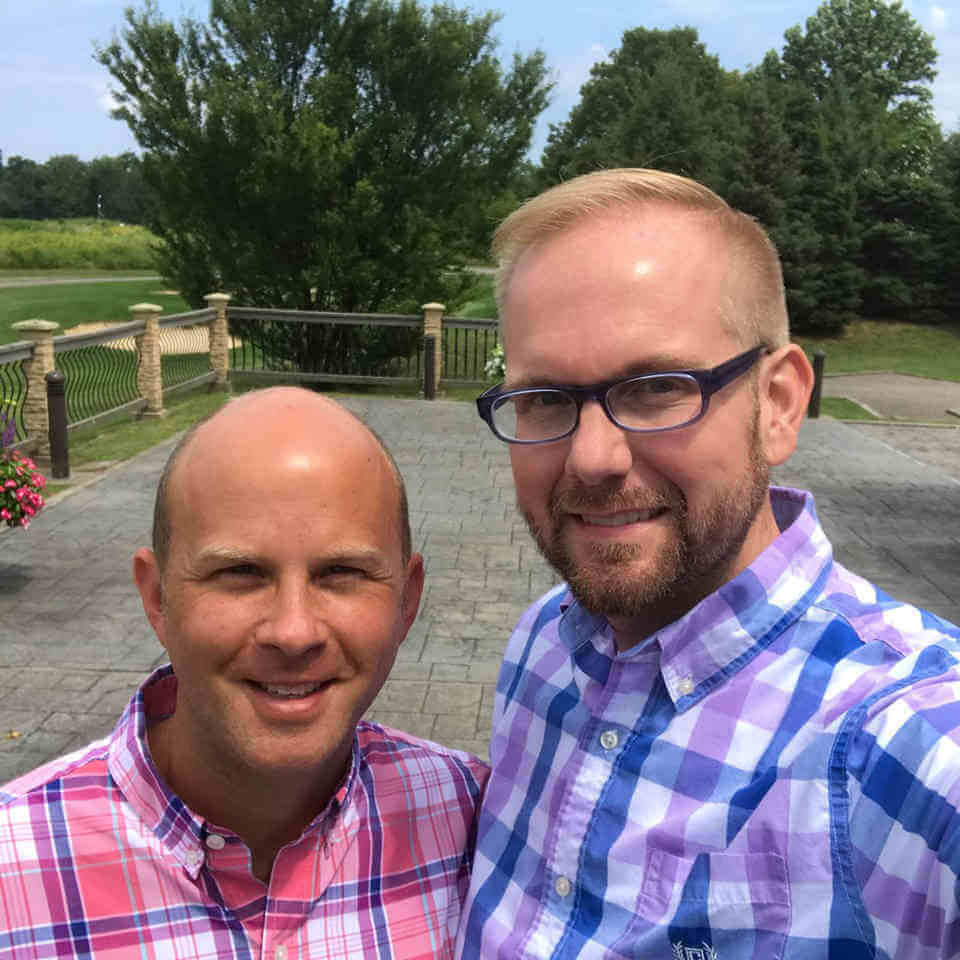Citing First Amendment rights, the US Department of Justice (DOJ) has taken the extraordinary step of diving into a state court contract law dispute in opposition to a Catholic schoolteacher who is suing the Archdiocese of Indianapolis after being fired for getting married to another man.
Joshua Payne-Elliott, in a case brought in Marion County Superior Court in Indianapolis, is arguing that the archdiocese unlawfully meddled in his contract with Cathedral High School when it issued an ultimatum to the school to either fire him or lose its official status as a Catholic school. Payne-Elliott has come to a settlement with the school itself, according to the Indianapolis Star, but his lawsuit against the archdiocese continues. And, now, the DOJ is taking interest in a case that coincidentally or not, is being litigated in homophobic Vice President Mike Pence’s home state.
Cathedral High School apparently feared the same fate as another Catholic institution, Brebeuf Jesuit Preparatory School, which lost its own official status as a Catholic school when it did not fire Payne-Elliott’s husband, Layton Payne-Elliott, at the time the couple married.
The religious right has often employed First Amendment arguments to challenge nondiscrimination statutes and policies, but here the DOJ is bringing a constitutional argument based on the First Amendment into a contract dispute.
In a Statement of Interest filed on September 27, the DOJ asserted, “The First Amendment protects the right of the Roman Catholic Archdiocese of Indianapolis to interpret and apply Catholic doctrine.”
In a written statement offered by the DOJ, US Attorney Josh Minkler said, “If the First Amendment’s Religion Clauses stand for anything, it is that secular courts cannot entangle themselves in questions of religious law.”
The Statement of Interest also states, “Supreme Court precedent clearly holds that the First Amendment protects the Archdiocese’s right to this form of expressive association, and courts cannot interfere with that right.”
First Amendment claims based on “expressive association” proved successful when the Boy Scouts of America in 2000 were able to overturn a New Jersey Supreme Court case that found the group had discriminated in dismissing James Dale, a gay scout leader who had earlier risen in the ranks to be an Eagle Scout. In the US high court’s ruling, Chief Justice William Rehnquist stated, “The forced inclusion of an unwanted person in a group infringes the group’s freedom of expressive association if the presence of that person affects in a significant way the group’s ability to advocate public or private viewpoints.”
He further wrote that it “seems indisputable that an association that seeks to transmit such a system of values engages in expressive activity.”
The New Jersey court had found that the Scouts’ firing of Dale was “antithetical to the organization’s goals and philosophy.”
The US Supreme Court fired back, saying, “It is not the role of the courts to reject a group’s expressed values because they disagree with those values or find them internally inconsistent.”
The Scouts’ victory was in some ways a Pyrrhic one, with the nation’s highest court declaring that homophobia was integral to its values and mission. Over the years, that posture became increasingly problematic for the Scouts’ image and the group finally found it necessary to reverse course.
Echoes of Rehnquist’s 2000 opinion in the Scouts decision are evident in the Trump administration’s aggressive defense of the Archdiocese in Payne-Elliott’s case when the DOJ’s Statement of Interest argues that “courts cannot second-guess how religious institutions interpret and apply their own religious laws.”
The DOJ’s statement did not come as a surprise to leading LGBTQ-friendly Catholic advocates who have watched the administration pick and choose which religious liberties it wishes to defend.
And Francis DeBernardo, executive director of New Ways Ministry, an LGBTQ Catholic organization, pointed to a different inconsistency, telling Gay City News on September 27 that the Church routinely gives a pass to those who violate other Church teachings.
“What about Church teachings on greed, the death penalty, unbridled capitalism, destruction of the environment, and war?” he asked. “The Church opposes all those things, and more, but no one is fired because of them. Even if the Archdiocese was legally allowed to fire the teacher, that doesn’t mean it was the moral course to take.”
He continued, “The problem with the archdiocese’s decision is that they selectively use their religious liberty to discriminate against LGBT people.”


































